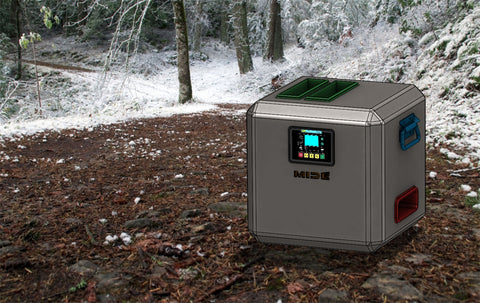Mide Awarded Phase I Option: Biomass Incinerating Stirling Cycle Energy Producer
Posted by Steve Hanly at Feb 02, 2017
Mide Awarded Phase I Option to continue the development effort for a Biomass Incinerating Stirling Cycle Energy Producer (BICEP Engine).

After successful completion of a Phase I contract in October 2016, the Marine Corp has awarded Midé the Phase I Option to continue the development effort for a Biomass Incinerating Stirling Cycle Energy Producer (BISCEP Engine).
Marines are often equipped with a significant number of electronic devices such as night vision, range finders, radios, computers, and phones. These devices all operate on batteries and require regular recharging. Conventional diesel and gas generators require a continuous supply of fuel, which often have a burdened cost of $100+ per gallon by the time they reach the war fighter. Additionally, the continuous transportation of fuel is a dangerous endeavor without proper infrastructure and potential for convoy ambushes. Renewable energy systems have been effective in reducing the demand for liquid fuel in desert environments where wind and solar are abundant. However, in covered locations (such as the jungle), there is little sunlight or wind energy available.
Mide developed a waste-to-energy system that is capable of burning biomass (such as trash, leaves, and wood) and converting that heat to energy. The waste-to-energy system allows materials on site to be used as fuel, reducing the overall logistics footprint. Phase I testing results at Brookhaven National Lab have been very encouraging, demonstrating that the system is capable of providing sufficient heat to meet the electrical needs of the Marines.
The standalone system has no open flame and is safe to operate. It will have the look and appearance resembling a small conventional generator (as shown above) and operate in a similar manner. The technology has the potential to fill humanitarian needs as a combined heat and power source. It can also be scaled to meet greater energy needs, such as those of a small base.
Need more information?

